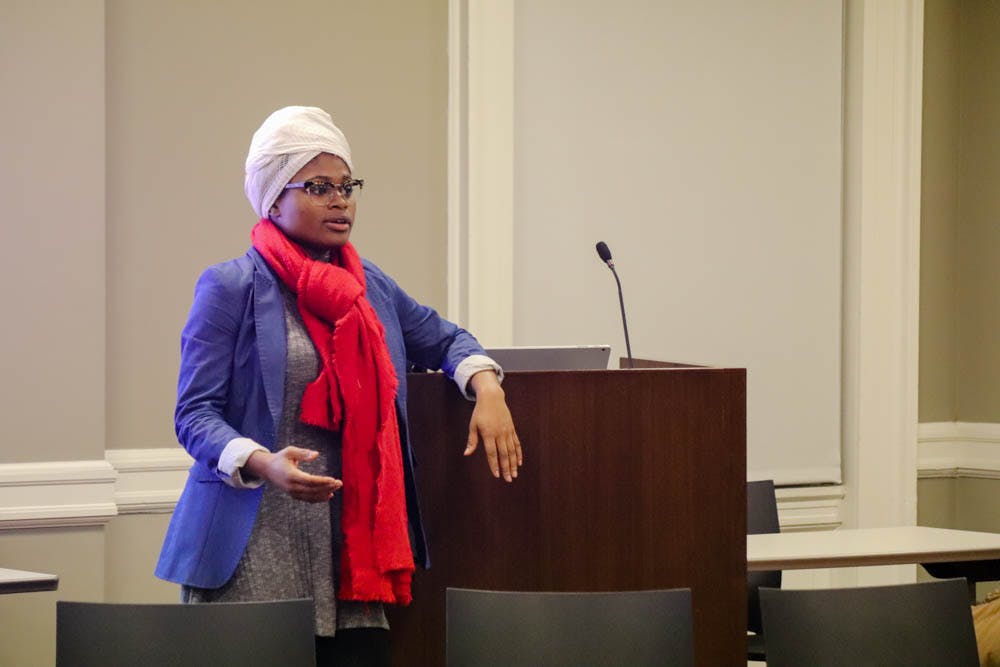The Undergraduate Council of Students approved changes to its constitution and discussed UCS executive board elections at its general body meeting Wednesday evening.
Changes to the constitution included removing outdated information, consolidating methods for approving and re-categorizing clubs and outlining a process for student groups to add member removal clauses to their constitutions, said William Zhou ’20, chair of the committee on student activities.
Outdated information removed from the constitution included a passage requiring all clubs to have mailboxes in the Student Activities Office and sections about Category I student group funding. These groups can now apply for funding from the UCS Initiatives Fund, which provides block grants to undergraduates and student groups categorized below Category III, according to UCS’ website.
Changes to the club approval process will allow new groups to receive official approval from UCS more quickly, Zhou said. Without the change, there are many steps involved in the process. “You have to meet with so many people and it has to go through many different links. It can take a long time,” he added.
Instead of requiring clubs to be approved by the Student Activities Committee and a UCS general body vote, the general body will only discuss clubs that present concerns.
“How we hope to facilitate that is by publishing a list of all the applications that are coming through our committee on a live Google Form that all the (general body) members can see,” Zhou said.
The third set of changes to the constitution will require new student groups or groups applying for re-categorization to include a member removal clause in their club constitution. UCS will post a template developed with the Title IX Office and other student leaders for such a clause on its website.
UCS President Chelse-Amoy Steele ’18 also gave a presentation on running for a position on UCS’ executive board at the meeting. The campaign process will begin early March.
“I can tell you from experience it’s no cakewalk. It’s not easy,” Steele said. “There are definitely a lot of tools and strategies you can use to get through it.”
Currently, to run for UCS president or vice president, candidates must obtain 400 student signatures. Candidates for other positions must collect at least 250 signatures, Steele said.
But this process remains a “major source of stress and a possible barrier to people running” because of the amount of time it requires to gather these signatures, Steele said. “I would really like to look at the whole elections process in general to see if it is fair and accessible.”
Both Steele and UCS Vice President Naveen Srinivasan ’19 discussed their experiences with the campaign process.
“It’s definitely a time where … you have to lean on your friends a bit more than usual,” Srinivasan said. “Social media is definitely very overwhelming during the campaign,” he added.
Steele also recapped changes to the Campus of Consent Bill that she presented at last week’s general body meeting. Representatives from Category III groups that would be affected by these changes will be present at next week’s meeting, Steele said.





